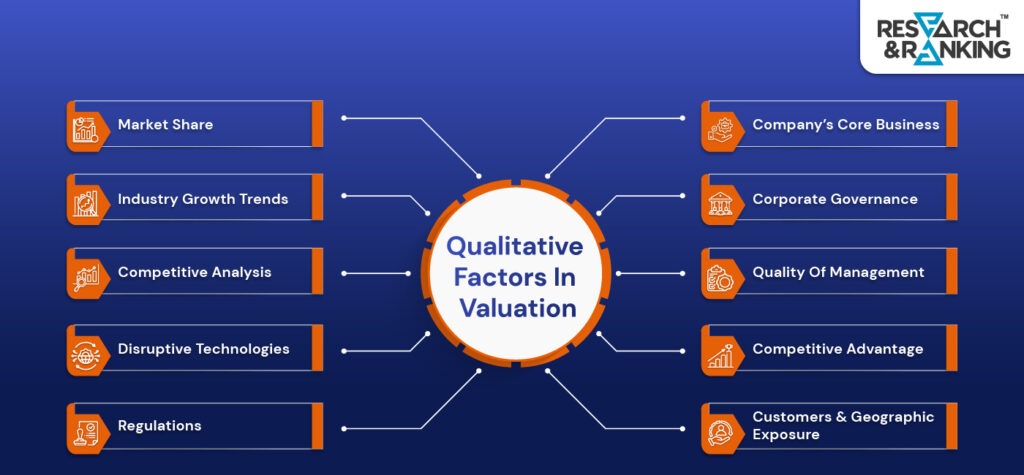Equity Investing
Equity investing means investing in the shares of a company traded in the stock market after quantitative equity analysis. If you buy shares or stocks of a company, you are essentially a shareholder or part of the company. The company’s success will potentially benefit you in the form of dividends and capital appreciation.
Benefits of equity investments
- It allows the possibility of earning money through dividends and capital gains.
- It is a diversified investment option with minimum initial investment.
- Though riskier, you can earn better returns than investments like savings accounts or fixed deposits. The risks can be minimized with the help of a share market research analyst.
Why Equity Research Matters
A crucial role of equity research is filling the gap in information between the sellers and buyers of shares. Most investors do not have the expertise or resources to assess and analyze every stock.
Stock market research analysts dedicate a lot of energy, time, and expertise to analyzing relevant stocks out of the pool of stocks. These researchers help you make better-informed decisions for your investment.
Equity research guides analysts in identifying trading strategies, patterns, etc., and using this data to identify profitable stocks for investment opportunities.
Fundamental Analysis: Understanding the Business
Fundamental analysis offers a holistic approach to understanding a company profile for investment. It is considered a guiding compass for equity investment. It provides details of a company’s fundamentals and industry dynamics, like growth prospects, earnings reports, management team, current financials, and competitive advantages.
Below are some critical factors offered by fundamental analysis:
- It evaluates the health and performance of the company through income statements, balance sheets, and cash flow statements. These financial statements help investors assess profitability, cash flow stability, revenue growth, and debt levels.
- Fundamental analysis of the earnings reports is like viewing a company’s report card. One can check if they’re growing their earnings, regularly making profits, or facing challenges.
- Understanding a company’s competitive position in the market is imperative. Knowing the company’s market share, advantages, and industry dynamics helps assess future growth.
- Fundamental analysis provides insight into the expertise and quality of the management team. Strong leadership indicates a healthy company capable of making smart decisions.
- The analysis of industry and market trends by stock market research analysts can predict if the industry will benefit from or face challenges with changes in the global financial market.
All these smaller pieces of information help an investor gauge the bigger picture and evaluate the core of a company’s financial health. So, investors should let the expert share market research analysts guide them.
Qualitative Factors: Beyond the Numbers
Having sound financial data to back investment decisions is crucial, but many other factors must be considered. Non-quantitative factors like competitive advantage, management quality, corporate governance, etc., are equally vital in deciding.

These are the qualitative factors in valuation. They cannot be directly quantified from annual reports, financial models, relative valuation tools, etc. These non-tangible elements also impact a stock’s worth.
A few qualitative factors are:
- Company’s core business
- Competitive analysis
- Quality of management
- Corporate governance
- Market share
- Customers and geographic exposure
- Competitive advantage
- Industry growth trends
- Disruptive technologies
- Government regulations
Technical Analysis
Technical analysis helps investment research analysts and traders predict the stock’s future prices. The analysts look for patterns and base their predictions on the study regarding when investors should buy or sell stocks. Thus, technical analysis provides a better understanding of the intrinsic value of a stock, the innate value, and the market price.
There are two main approaches to technical analysis
- Top-down: In this approach, the share market research analysts first examine the overall economy. They study how the economy will impact the business sectors, local markets, and individual stocks. This approach typically works for short-term investors.
- Bottom-up: This is the opposite approach and is mainly used for long-term investments. Here, the stock market research analysts look at a specific stock to understand if it is undervalued and then decide on the ideal time to trade this particular stock.
Different technical analysis techniques help investors make informed decisions of entry and exit for each stock in their portfolio.

Build your well-diversified portfolio
Create wealth now!
Build your well-diversified portfolio
Create wealth now!
Valuation Methods: Determining Fair Value
In simple terms, stock valuation is like determining the fair price of a product. Investors might become overwhelmed by the different valuation techniques when deciding on the ideal valuation method.
This is when stock market research analysts use their expertise to value a stock. These valuation methods might be straightforward or complicated. Unfortunately, there is no one particular method that suits all. Each stock has unique characteristics, strengths, and weaknesses, which may require various valuation methods.
Types of stock valuation techniques
Primarily, there are two types of stock valuation methods:
- Absolute: This stock valuation method is based on a company’s fundamental analysis and not comparing it with peers. It bases its valuation on financial information like financial statements, cash flow metrics, dividends, and growth rates. This method of calculating a stock value involves the computation of the dividend discount model (DDM) and discounted cash flow model (DCF).
- Discounted Cash Flow (DCF): It estimates a company’s value by considering its expected cash flows in the future based on revenue growth, profit margins, and the cost of capital. Money to be received in the future is less valuable than today’s. DCF analysis calculates a value by discounting future cash flows. As the DCF method involves projecting forecasts and making assumptions, it is crucial to evaluate the inputs.
- Dividend Discount Model (DDM): This technique uses the present value of the dividends expected in the future to calculate a stock’s value. This assumes that the stock’s value is equivalent to the sum of all dividends expected in the future, discounted from their present value.
- Relative: The term indicates that financial reports of companies like the focus company are compared. This approach uses the P/E (Price-to-Earnings) method. In cases where the P/E ratio of the focus company is lower than its competitors, it means the stocks of the focus company are undervalued.
- Price-to-Earnings (P/E): The stock’s market price is compared to the earnings per share (EPS) the company generates. A higher P/E ratio indicates better future growth, whereas a lower ratio implies a lower valuation.
Building a Robust Investment Strategy
Building equity investment portfolios can often feel daunting. However, stock market research analysts offer tips on creating a well-rounded equity investment portfolio through quantitative equity analysis and strategy. Without due diligence, your investments can collapse.
A few critical factors involved include the following:
- Ascertain your risk tolerance and investment time range
- Plan how active you want to be
- Pick an account that meets your goals
- Choose your investments wisely with the help of stock market research analysts
- Fix a budget
- Review and adjust your investments.
To Conclude:

Equity research by a stock market research analyst is a crucial piece that investors use to make better-informed decisions when investing in different share types. This research is often funded by institutional investors who use investment research analysts mainly on a fee basis. The credibility of a research firm or stock market research analyst depends on their efforts in providing reliable research.
Research and analysis benefit stock market research analysts seeking insights and finance enthusiasts understanding equity details.
FAQ
What does a stock market research analyst do?
Research analysts conduct financial analyses, examine data, build financial models, and submit research reports with investment recommendations.
What skills are required for a stock market research analyst?
An investment research analyst requires a thorough understanding of financial markets, strong analytical abilities, and proficiency in financial modeling.
What are the different types of analysis in equity research?
Quantitative equity analysis has various types, such as –
fundamental analysis
technical analysis
sentimental analysis
Read more: How Long-term investing helps create life-changing wealth – TOI.
How useful was this post?
Click on a star to rate it!
Average rating 5 / 5. Vote count: 1
No votes so far! Be the first to rate this post.
I’m Archana R. Chettiar, an experienced content creator with
an affinity for writing on personal finance and other financial content. I
love to write on equity investing, retirement, managing money, and more.
-
Archana Chettiarhttps://www.equentis.com/blog/author/archana/
-
Archana Chettiarhttps://www.equentis.com/blog/author/archana/
-
Archana Chettiarhttps://www.equentis.com/blog/author/archana/
-
Archana Chettiarhttps://www.equentis.com/blog/author/archana/

